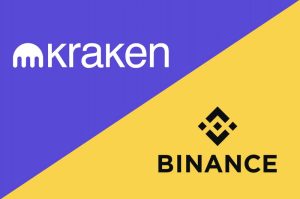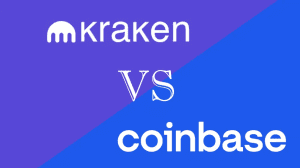What Is A Decentralized Exchange? DEX for Dummies

A decentralized exchange, or DEX for short, is a platform for buying and selling cryptocurrencies that operates without a central authority or middleman.
In a traditional exchange, a centralized authority (such as a bank or exchange) facilitates the transactions and holds custody of the assets being traded. In contrast, a DEX operates on a blockchain network, allowing users to trade cryptocurrencies directly with one another without the need for a central authority to manage the transactions.
By removing the need for a central authority, DEXs offer greater privacy, security, and control over assets. However, they may also have lower liquidity and higher transaction fees compared to centralized exchanges.
How Does a DEX Work?
A decentralized exchange (DEX) works by allowing users to trade cryptocurrencies directly with each other without the need for a centralized authority to manage the transactions.
Here’s a simplified overview of how a DEX works:
- User A wants to buy cryptocurrency X and has cryptocurrency Y to trade for it.
- User B wants to sell cryptocurrency X and is willing to accept cryptocurrency Y in exchange.
- User A and User B connect to the DEX platform and create an order. User A places an order to buy X with Y, while User B places an order to sell X for Y.
- The DEX uses smart contracts, self-executing programs that run on the blockchain, to match the orders. The smart contract checks the conditions of both orders, such as the price and quantity, and automatically executes the trade if they match.
- Once the trade is executed, the smart contract transfers the agreed-upon amount of X and Y between the two users’ wallets on the blockchain.
Because DEXs operate on a blockchain network, they offer several benefits over traditional centralized exchanges, including greater privacy, security, and asset control. However, they may also have lower liquidity and higher transaction fees compared to centralized exchanges.

Decentralized Exchange Benefits
Decentralized exchanges (DEXs) offer several benefits over traditional centralized exchanges, including:
1. Greater Privacy:
DEXs allow users to trade cryptocurrencies without having to disclose their personal information or identity. This can help to protect users’ privacy and reduce the risk of identity theft or fraud.
2. Increased Security
DEXs are more secure than centralized exchanges because they do not hold users’ funds. Instead, users retain control over their assets in their own wallets, reducing the risk of hacking or theft.
3. No Central Authority
DEXs are not controlled by a central authority or middleman, which means there is no risk of censorship or interference from third parties.
4. Trustless Trading
DEXs allow users to trade directly with each other using smart contracts, which are self-executing programs that run on the blockchain. This means that users do not need to trust a third party to manage their trades.
5. Decentralized governance
Many DEX users govern them through decentralized autonomous organizations (DAOs). That way, these users get to vote on important decisions such as fee structures and listing new tokens.
DEXs’ Shortcomings
While DEXs have several benefits, it’s worth noting that they may also have lower liquidity and higher transaction fees compared to centralized exchanges. Additionally, the user experience can be more complex, requiring users to have a basic understanding of blockchain technology and how to use wallets and smart contracts.
Another aspect worth keeping in mind is the fact that there are higher transaction fees involved. DEXs often have higher transaction fees than centralized exchanges, as the cost of executing trades on the blockchain can be higher. This can make it less cost-effective to trade small amounts of cryptocurrency.
Transactions, on the other hand, can take longer to process than on centralized exchanges. This can lead to slower transaction times and longer wait times for executing trades.
Finally, DEXs typically have a more limited selection of tokens available for trading than centralized exchanges. This can make it harder to find certain tokens or participate in new token offerings.
The Most Popular Decentralized Exchanges
There are plenty of DEXs to choose from. What separates them is the number of tokens they offer, their transaction fees, and support for various payment methods. Here’s a list of the best decentralized exchanges as of 2023.
- Exodus
- OKX
- Binance DEX
- Uniswap
- Curve Finance
- Kine Protocol
- PancakeSwap
- Huobi
- KuCoin
- SushiSwap
- dydx
- ApolloX
Last Thoughts
Overall, DEXs can be a good option for those looking to trade cryptocurrencies in a more decentralized and trustless manner. However, it’s important to be aware of the potential drawbacks and to carefully consider whether a DEX is a right choice for your trading needs.






3 thoughts on “What Is A Decentralized Exchange? DEX for Dummies”